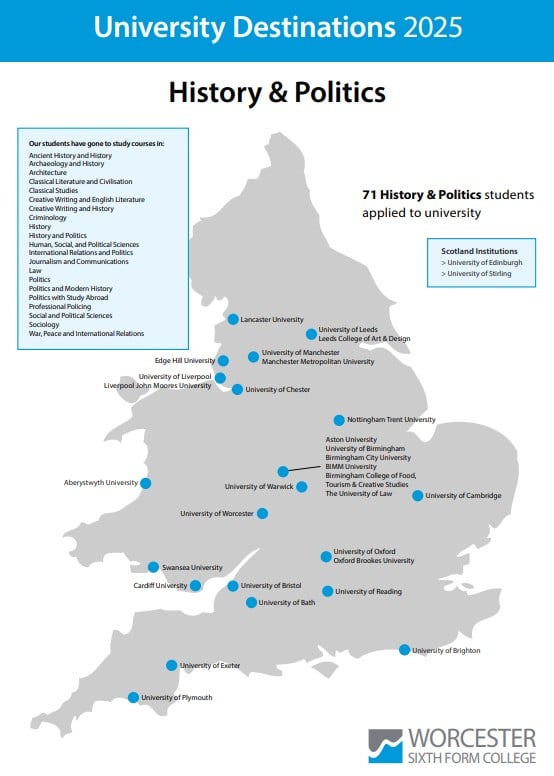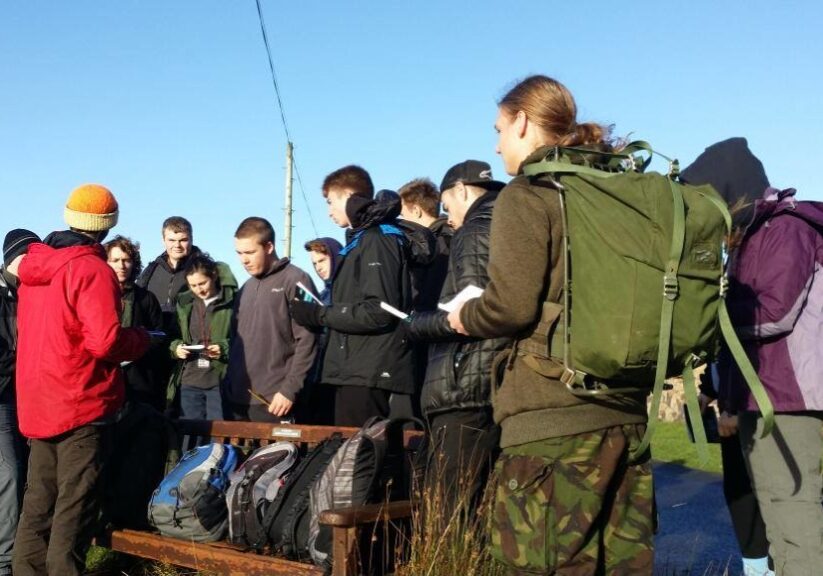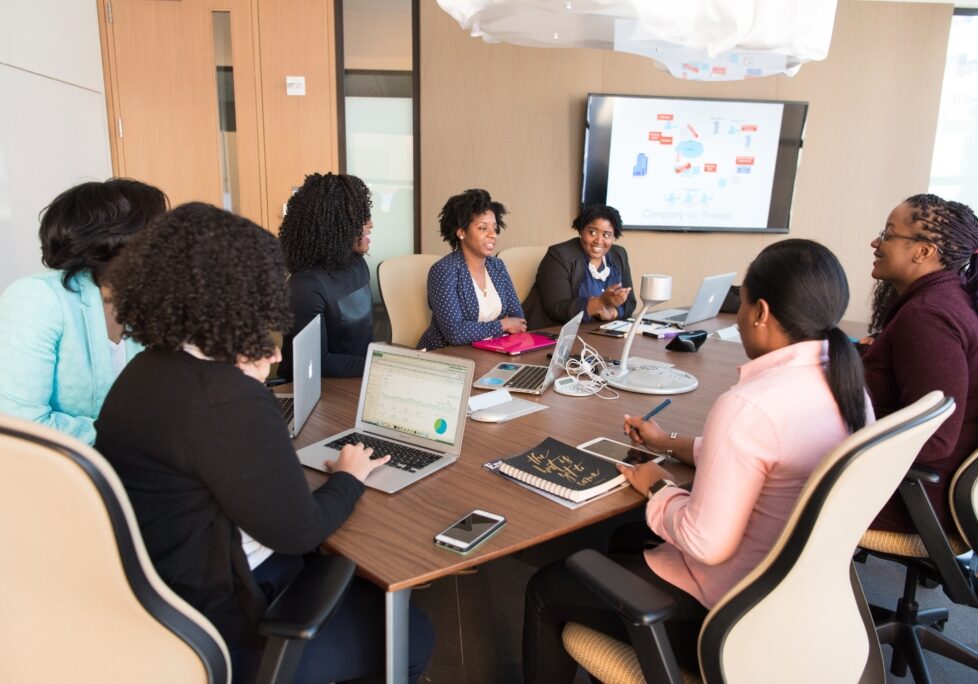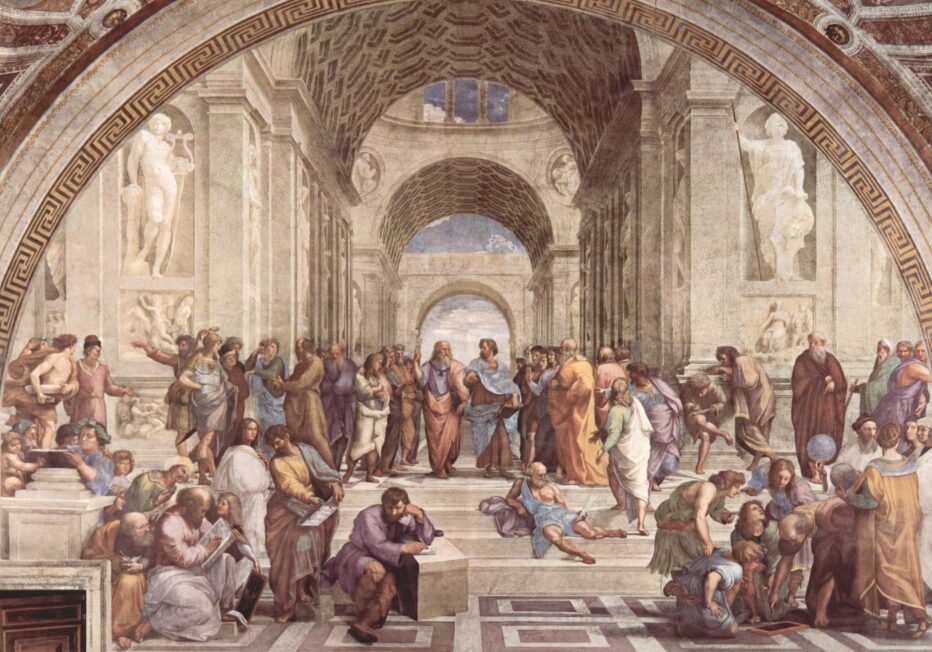Why Study History?
‘Study History, study History. For in History lies all the secrets of statecraft.’ – Winston Churchill.
‘More than anything, it is important to study History’ - BB King
- Understand the Forces that Shaped the Early Modern or Modern Worlds – Explore the dramatic political, religious, and imperial changes of the 16th and 17th centuries, from the rise of Spain as a global power to the collapse of royal authority in Civil War England OR explore key political, social, and economic developments from the 20th century, including the fight for civil rights in the USA and South Africa, the impact of Nazism in Germany, and Britain’s evolving role in global warfare.
- Develop Critical Thinking and Argument Skills – Learn to analyse sources, evaluate historical interpretations, and construct persuasive, evidence-based arguments—skills that are essential for university and beyond.
- Engage with Complex. Controversial and Relevant Themes – Investigate issues in Early Modern History like absolute monarchy, religious conflict, empire-building, and revolution, and consider how these struggles laid the foundations of the modern world OR in Modern History investigate topics like racial injustice, resistance to authoritarianism, and the human cost of war, while drawing connections to ongoing struggles for freedom and security in today’s world.
The two A Level History (Modern and Early Modern) courses provide an opportunity to study either:
- The USA (In Search of the American Dream c.1917-1996), South Africa (1948 – 1994: From Apartheid State to ‘Rainbow Nation'), the British Experience of Warfare c. 1790-1918; and coursework on ‘How far was the Holocaust a long-term plan by the Nazi Regime?’
(Modern History - Edexcel)
or - Spain in the Age of Discovery, 1469-1598; The English Revolution, 1625-1660; and coursework on Aspects of French History - Absolutism, Royal ministers, the French nobility, the Huguenots 1610-1715 (Early Modern History - AQA)
Why Study History at Worcester Sixth Form College?
History (Early Modern or Modern) pairs brilliantly with a wide range of subjects at College - especially Politics, Law, Sociology, Philosophy, Ethics & Religion, Classical Civilisation, Geography and Economics.
Previous field trips have taken students as far as Paris and as close as local historic sites like The Commandery and Worcester Cathedral, as well as the Holocaust Centre in Nottinghamshire to hear powerful testimonies from survivors. The History and Politics Department also offers exciting opportunities to visit Washington DC and regularly hosts guest speakers from top universities to enrich students’ learning beyond the classroom.
Progression Opportunities
A Level History is highly respected by universities and offers a strong foundation for a wide range of careers—including Law, the Civil Service, Politics, Local Government, teaching, and the media. Many students choose to continue their historical studies at university and even further. Notable recent successes include a student gaining a place at Cambridge University to read Human, Social and Political Sciences, and another gaining a place at Oxford University to read History.


Rufus Morley

Course Specifics / Entry Requirements
| Qualification Name | Maths GCSE Req. | English GCSE Req. | Other Req. | Desirable Qualifications | Skills & Attributes Required for Success | Guidance on Costs or Commitments |
|---|---|---|---|---|---|---|
| History | 4 | GCSE History, if taken, at grade 4 or above. Refer to department if History not taken | Ability to meet deadlines and to think critically. | Optional trip to France, Germany or Russia may be offered (approx. £200 - £600) |
Related Courses / Activities

Latin Certificate

Duke of Edinburgh

Law A Level

Travel and Tourism Level 3 Applied

Business A Level

Classical Civilisation A Level

English Language A Level



